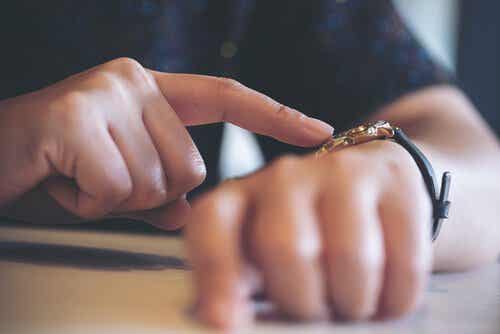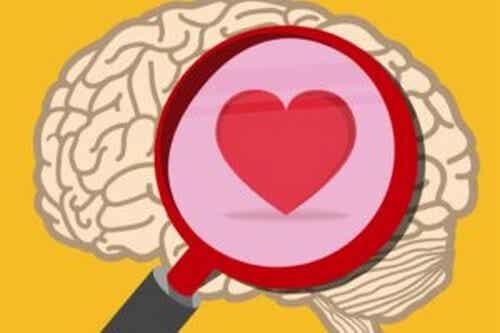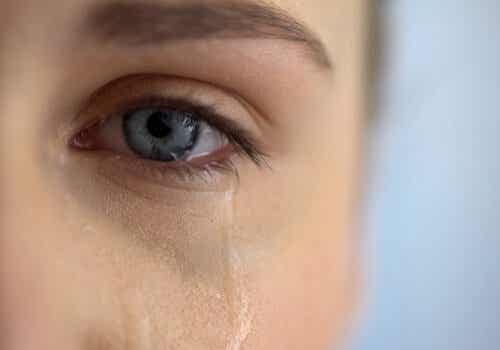In today's article, we talk about processing a loss in this particular historical period and its restrictions.

Last update: May 14, 2020
There are times that can take us to the limit, when we feel overwhelmed, angry, helpless, frustrated and deeply grieved. Crises in some cases lead us to this, but fortunately they are moods that we can overcome. In this article we will talk about the difficult relationship between bereavement and Coronavirus.
Accepting the changes brought about by the current pandemic is not easy at all, as many of us are, in fact, facing different types of pain.
To walk this path together, we will delve into the different psychological theories inherent in bereavement and current research on the Coronavirus. Many of them are extremely recent and specially formulated to address the situation.
Meanwhile, let's try to give a preliminary definition of mourning. According to Jorge L. Tizón, a Spanish neuropsychiatrist and psychoanalyst, mourning is «a set of phenomena activated by a loss: phenomena that are not only psychological, but also psychosocial, social, physical, anthropological and even economic».
Well, the Covid-19 pandemic has triggered a series of changes globally. These changes have also caused loss, and consequently pain, to varying degrees. In the next few lines we will delve into the specific relationship between bereavement and coronavirus.
"When we are no longer able to change a situation, we are faced with the challenge of changing ourselves."
-Viktor Frankl-
Mourning and Coronavirus: manifestations and types
It is extremely common for a bereaved person to experience the following sensations:
- Physiological. For example, a burden on the stomach, a sense of tightness in the chest and throat, hypersensitivity to noises, feelings of depersonalization, lack of air, headache, dry mouth, palpitations.
- Behavioral. Such as sleep disturbances, social isolation, continually crying and sighing, being distracted, etc.
- Affective. Anger, guilt, anxiety, attachment and lack of feeling.
- cognitive. Problems with memory, attention and concentration, repetitive thoughts, among others.
These are just some of the manifestations that tend to occur in these cases, and which give rise to a unique picture for each individual. What are, however, the types of bereavement related to the Coronavirus emergency? We can say that they are the following depending on the type of loss:
- Anticipatorio. It is the process of prolonged bereavement, which begins before the loss occurs. It usually occurs when an incurable disease is diagnosed.
- Chronic. Also called pathological or complicated. It is an unresolved bereavement in which the person does not stop reliving the mechanisms linked to the experience of loss.
- Distorted. When there is a disproportionate reaction to the situation.
- Absent. It occurs when a person denies the event of the loss. It is also considered one of the stages of mourning.
- Discredited. That is when there is the rejection of a person's pain by third parties, which encourage the containment of any manifestation that may be a reflection of the grief.
- Inhibited. It occurs when feelings are not expressed and the pain of loss is avoided.
Loss and pain
Pain can also be manifested in other ways depending on the loss. For example, there is relational pain, more related to the loss of deceased people, separations, etc. Or the material pain, more linked to the loss of goods and property.
According to still other classifications, pain is linked to family and social factors such as loss of autonomy or functionality, social isolation, lack of financial resources or adequate support.
Regarding mourning and Coronavirus, Cara L Wallace and her colleagues published an analysis in the Journal of Pain and Symptom Management in which they suggest that social distancing policies, restrictions on visitors to health facilities and the impact of the spread of viruses make it harder to process pain.
Just think that the dynamics that accompany mourning and to which we were used to have significantly changed. Funerals are an example of this: after the total restrictions of the last few weeks, in phase 2 there will be a limited number of participants.
How to deal with the situation?
Experiencing a loss means going through several stages and coronavirus-related grief is no exception.
According to the expert Elisabeth Kübler Ross, these phases are: denial, in which we suspend the pain; anger, where resentment arises from frustration; negotiation, characterized by forms and attempts of control; depression, marked by a deep feeling of emptiness and acceptance, characterized by the re-meaning and understanding of the event. To reach this last phase it is necessary:
- Express your emotions. Release tensions and tune into your emotional universe.
- Letting go. As painful as it may be, it is important to let go of the situation and flow into life. However, this does not mean that you should forget your loved ones or the past.
- Ask for help. To support this emergency, various telematic support channels have been created. Also, don't forget that there are experienced bereavement professionals, such as psychologists, many of whom are also teletherapy professionals.
- Use all available resources. What can we do with what we already have? Don't leave out any areas.
- Take care of yourself. Let's not neglect our social health: physical distancing is not the same as social isolation. Also, let's not forget about physical health, let's pay attention to diet, exercise and rest. Let's take care of our psyche, dedicating time to something we love, to meditation and the release of tensions.
Some research, such as that by authors Cyrus SH Ho, Cornelia Yi Chee and Roger CM Ho, supports the validity of psychoeducation and psychological intervention online. On the other hand, dedicating yourself to mindfulness, relaxation techniques, stress management and meditation allows you to be more serene.
Mourning and Coronavirus: to conclude ...
The mourning related to the Coronavirus is very special precisely because of the circumstances in which it occurs. In this sense, it is likely to prove more complicated precisely because many resources needed to carry it out are blocked by the emergency.
Interpersonal contact is an example of this. That is why it is so important to use all available resources, especially technological ones.


























